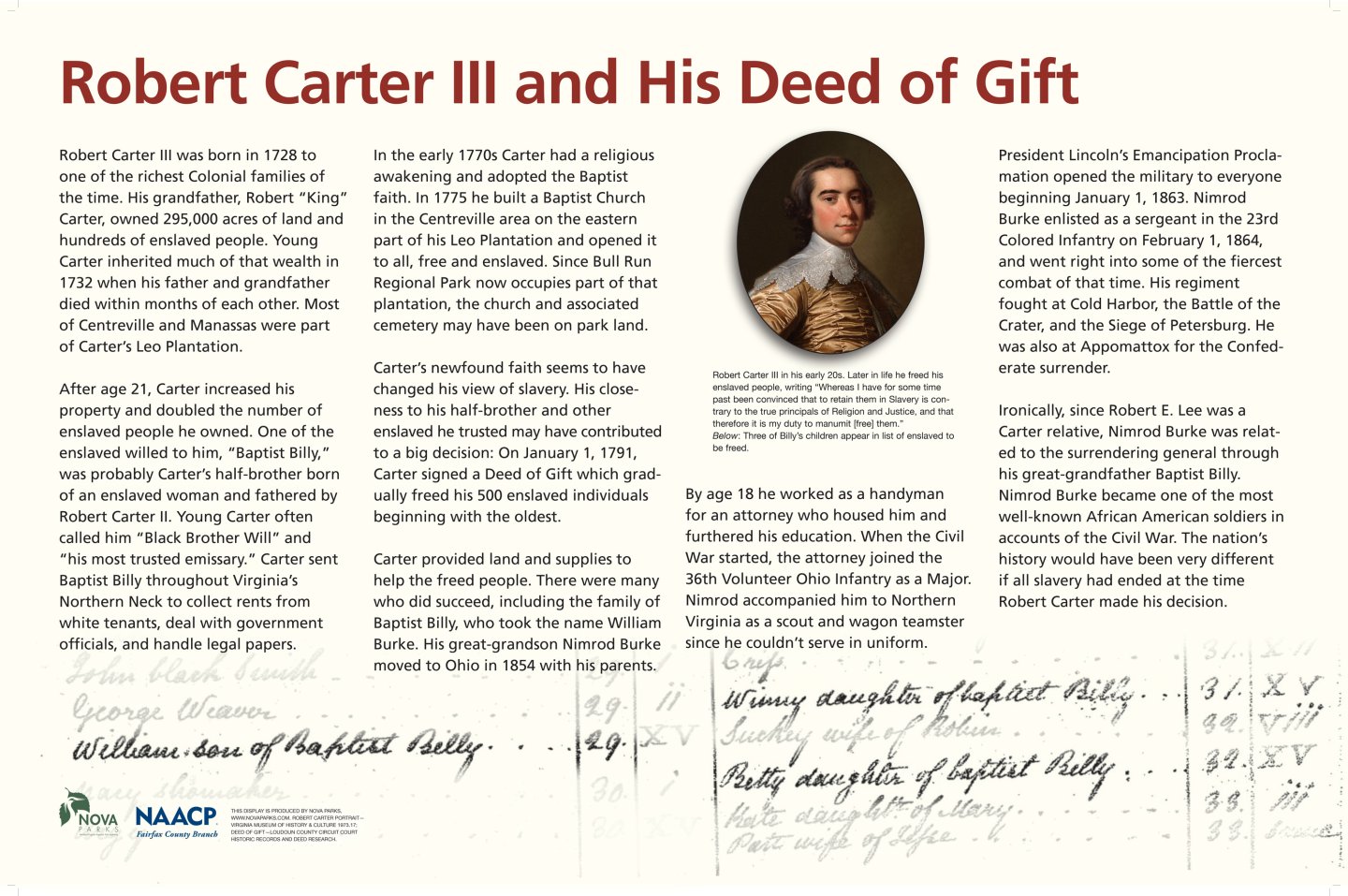Bull Run Regional Park
Park History Interpretive Series: Robert Carter III and His Deed of Gift

Robert Carter Ill was born in 1728 to one of the richest Colonial families of the time. His grandfather, Robert "King" Carter, owned 295,000 acres of land and hundreds of enslaved people. Young Carter inherited much of that wealth in 1732 when his father and grandfather died within months of each other. Most of Centreville and Manassas were part of Carter's Leo Plantation.
After age 21, Carter increased his property and doubled the number of enslaved people he owned. One of the enslaved willed to him, "Baptist Billy," was probably Carter's half-brother born of an enslaved woman and fathered by Robert Carter II. Young Carter often called him "Black Brother Will" and "his most trusted emissary." Carter sent Baptist Billy throughout Virginia's Northern Neck to collect rents from white tenants, deal with government officials, and handle legal papers.
In the early 1770s Carter had a religious awakening and adopted the Baptist faith. In 1775 he built a Baptist Church in the Centreville area on the eastern part of his Leo Plantation and opened it to all, free and enslaved. Since Bull Run Regional Park now occupies part of that plantation, the church and associated cemetery may have been on park land.
Carter's newfound faith seems to have changed his view of slavery. His closeness to his half-brother and other enslaved he trusted may have contributed to a big decision: On January 1, 1791, Carter signed a Deed of Gift which gradually freed his 500 enslaved individuals beginning with the oldest.
Carter provided land and supplies to help the freed people. There were many who did succeed, including the family of Baptist Billy, who took the name William Burke. His great-grandson Nimrod Burke moved to Ohio in 1854 with his parents.
By age 18 he worked as a handyman for an attorney who housed him and furthered his education. When the Civil War started, the attorney joined the 36th Volunteer Ohio Infantry as a Major. Nimrod accompanied him to Northern Virginia as a scout and wagon teamster since he couldn't serve in uniform.
President Lincoln's Emancipation Proclamation opened the military to everyone beginning January 1, 1863. Nimrod Burke enlisted as a sergeant in the 23rd Colored Infantry on February 1, 1864, and went right into some of the fiercest combat of that time. His regiment fought at Cold Harbor, the Battle of the Crater, and the Siege of Petersburg. He was also at Appomattox for the Confederate surrender.
Ironically, since Robert E. Lee was a Carter relative, Nimrod Burke was related to the surrendering general through his great-grandfather Baptist Billy. Nimrod Burke became one of the most well-known African American soldiers in accounts of the Civil War. The nation's history would have been very different if all slavery had ended at the time Robert Carter made his decision.


